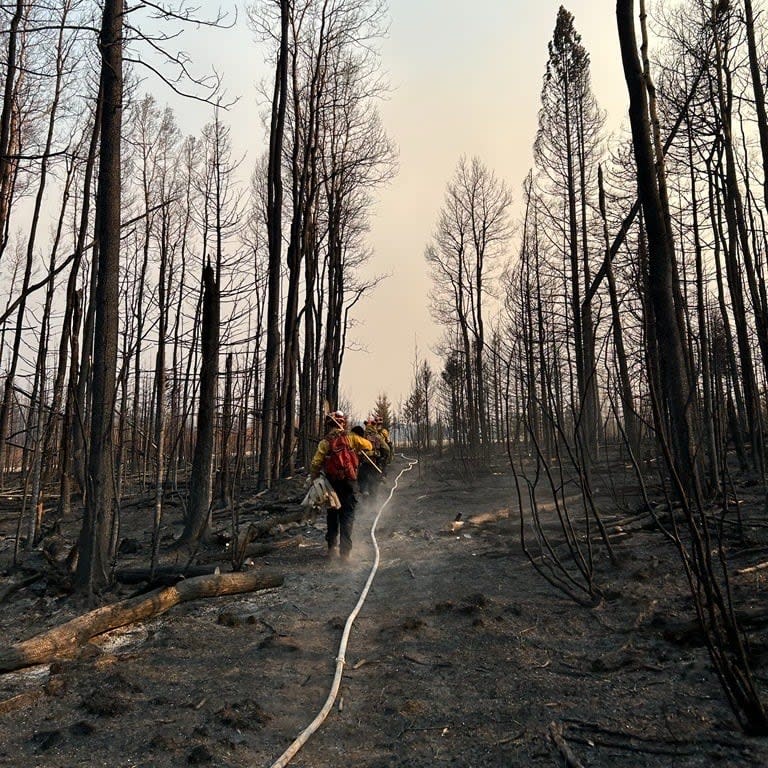Rural municipalities push for disaster service standards as wildfire season looms

Rural municipalities plan to push the province for more guidelines when hosting evacuees from natural disasters in a bid to better account for costs.
Thousands of people evacuated to cities and towns across Alberta last summer, fleeing wildfires in the Northwest Territories and within the province.
Local municipalities scrambled to provide food and shelter to those whose lives were upturned during Canada's worst wildfire season on record.
"We have to do it because it's important, we need to help people when they're in trouble. But it's also a strain on our own residents as well as our personnel as well," County of Grande Prairie Councillor Karen Rosvold said in an interview Tuesday morning with CBC's Edmonton AM.
That afternoon, members of the Rural Municipalities of Alberta — comprising around 70 counties and municipal districts — approved the county's resolution to lobby the province to establish a level of service for emergency services.
The RMA is having its spring convention in Edmonton this week.
"We want to be able to actually just be able to invoice," Rosvold said after the vote.
"And so if we get that level of service that we're asking for, with the fees that are in line with that level of service, then there won't be the questions and there won't be the confusion as to what's going where, who's paying for what."
Municipalities must currently turn to the Disaster Recovery Program for reimbursement for provided services. Local authorities apply to the Alberta Emergency Management Agency for a conditional grant.
Rosvold said it's an arduous process without guarantees. Further, she said, some costs simply aren't covered. For instance, municipalities can only apply for overtime reimbursement when municipal staff are redirected from their regular jobs.
"We just need to have a balance there for that," Rosvold said.
Provincial preparation
Arthur Green, press secretary for the minister of public safety and emergency services, said the ministry regularly meets with municipalities to talk about the DRP and work with local MLAs.
"Alberta's government is committed to making sure communities are reimbursed for eligible costs incurred from responding to the 2023 northern Alberta wildfires, and costs associated with hosting evacuees from Northwest Territories."
AEMA has received requests from 33 communities under the 2023 Alberta Wildfire Disaster Recovery Program and paid out $23.1 million, Green said. Municipalities have up to three years to submit claims.
Another $30,000 has been paid to date through 15 submissions for the Northwest Territories Cost Reimbursement Program.
"We recognise the importance of making sure municipalities hosting evacuees are supported to provide for the needs of evacuees," Green said.
"The [AEMA] is working with local authorities and our cross-ministry partners to get ready for the upcoming fire season and ensure a well co-ordinated and efficient response."
AEMA is also co-ordinating a third-party review of 2023 wildfire response efforts, Green said.
Alberta officially declared an early start to wildfire season, which typically runs from March to October, toward the end of February.
There are currently 55 wildfires burning in the province, according to the Alberta Wildfire Status Dashboard, although none listed are out of control.


